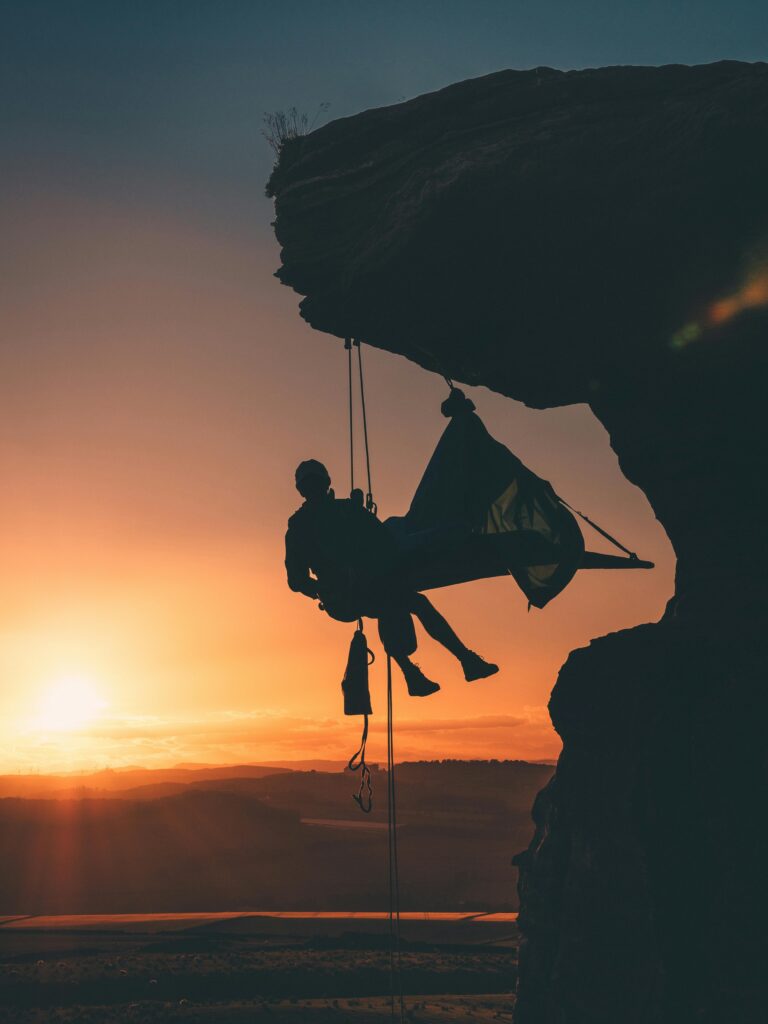Understanding Fear
Fear is one of the biggest mental hurdles climbers face, whether it’s fear of falling, failure, or exposure. Recognizing and addressing these fears is the first step to overcoming them. Instead of suppressing fear, acknowledge it and break it down logically. Identify the specific aspects that make you anxious—are you afraid of falling because you doubt your gear, or do you feel uncomfortable with exposure? Educate yourself on safety procedures, practice controlled falls in a secure environment, and gradually push your comfort zone to develop trust in your abilities and equipment.
/
The Power of Visualization
Visualization is a powerful mental tool that elite climbers use to prepare for challenging routes. Before attempting a climb, close your eyes and mentally rehearse each move, picturing yourself executing it smoothly and confidently. This technique helps reduce uncertainty and builds a sense of familiarity with the route. Studies show that mental rehearsal activates the same neural pathways as physical practice, reinforcing muscle memory and boosting confidence when you step onto the wall.
/
Developing Focus and Mindfulness
Staying present while climbing is essential for making quick decisions and maintaining control over your movements. Mindfulness techniques, such as controlled breathing and meditation, can help climbers stay in the moment rather than getting overwhelmed by the difficulty ahead. Try incorporating deep breathing exercises before a climb and practicing awareness of each movement during the ascent. This heightened focus will allow you to react calmly to unexpected challenges and maintain composure under pressure.
‘
Managing Performance Anxiety
Many climbers experience performance anxiety, especially in competitions or high-stakes outdoor routes. The key to managing this anxiety is shifting the mindset from fearing failure to embracing the learning process. Set realistic goals for each climb and measure success based on progress rather than perfection. Remember that every failed attempt is an opportunity to learn and grow. Reframe negative self-talk into constructive encouragement—for example, instead of thinking, “I can’t do this move,” tell yourself, “This move is challenging, but I will give it my best effort.”
‘
Building Mental Resilience
Mental resilience is about bouncing back from setbacks and staying motivated despite challenges. Climbing is full of obstacles, from failed attempts to unexpected weather conditions, and the ability to persevere through them is what separates great climbers from the rest. Practice setting small, achievable goals, and celebrate each milestone. Keep a journal to track progress, noting both successes and areas for improvement. Surround yourself with a supportive climbing community that encourages you to push your limits while reminding you that setbacks are a natural part of growth.
/
Conclusion: Strengthen Your Mind, Elevate Your Climb
Just as physical training enhances your climbing ability, mental training is equally important in reaching new heights. By addressing fears, visualizing success, practicing mindfulness, managing anxiety, and building resilience, you can develop the mental fortitude needed to tackle any climb. Keep training both body and mind, and enjoy the journey toward becoming a stronger, more confident climber. For more climbing strategies and expert insights, stay connected and keep challenging yourself! AND remember to always keep improving you understanding of the psychology of climbing!

